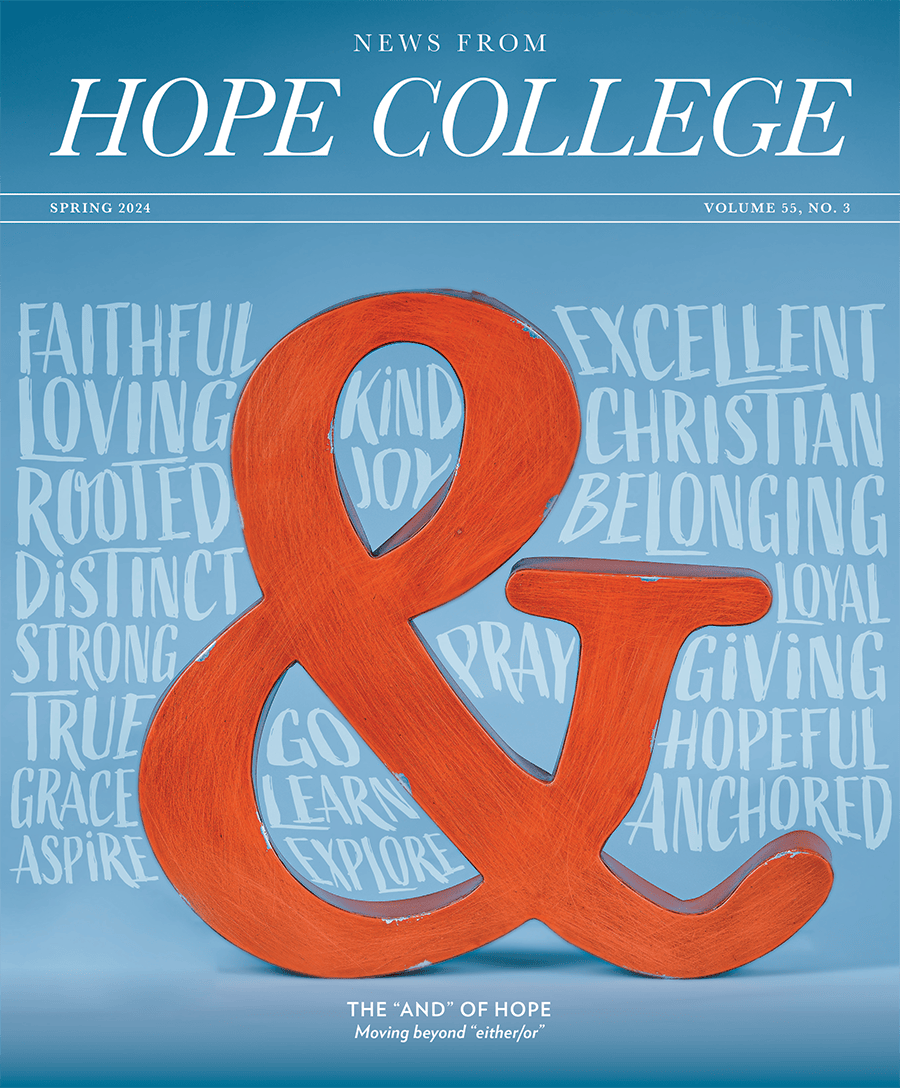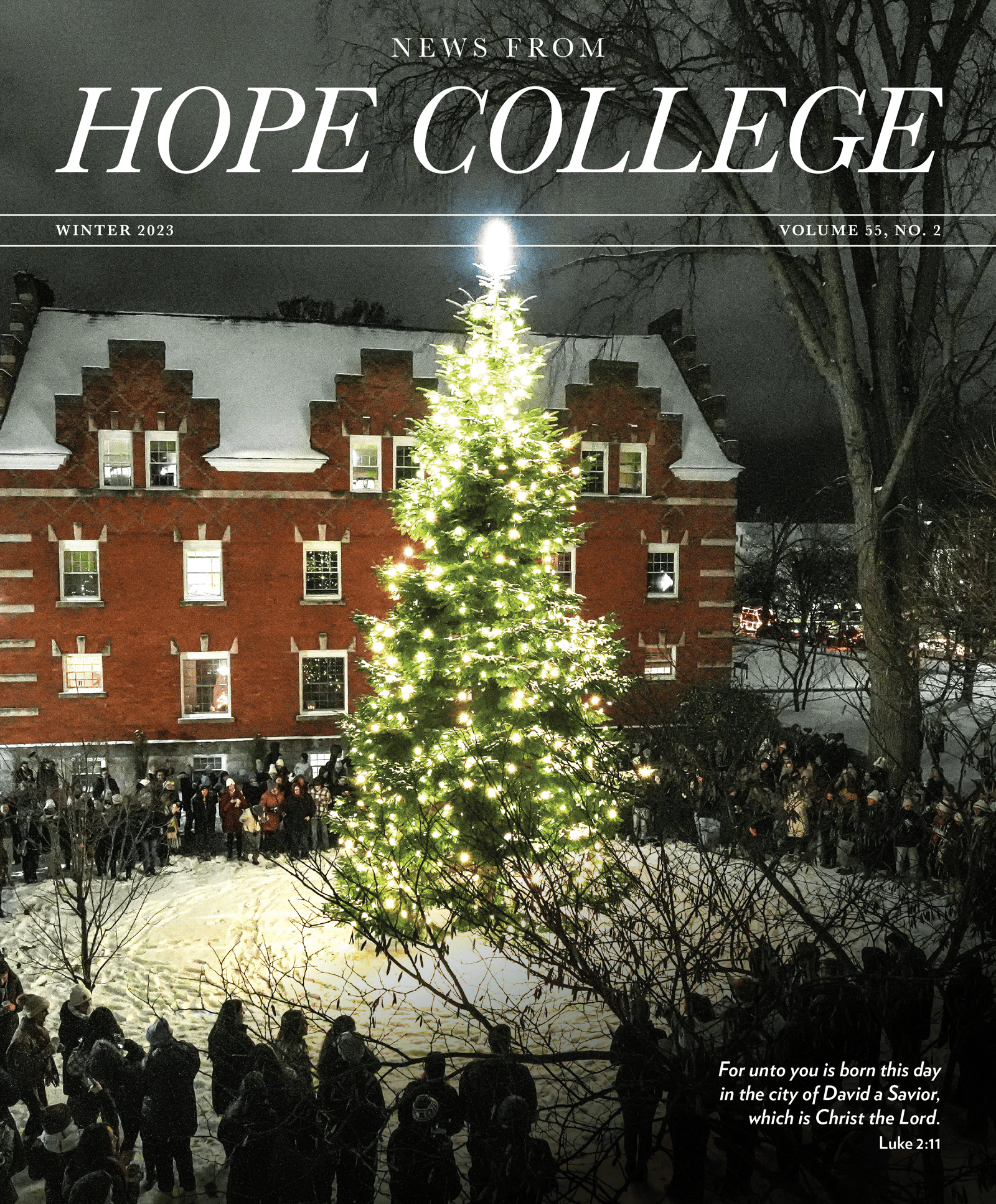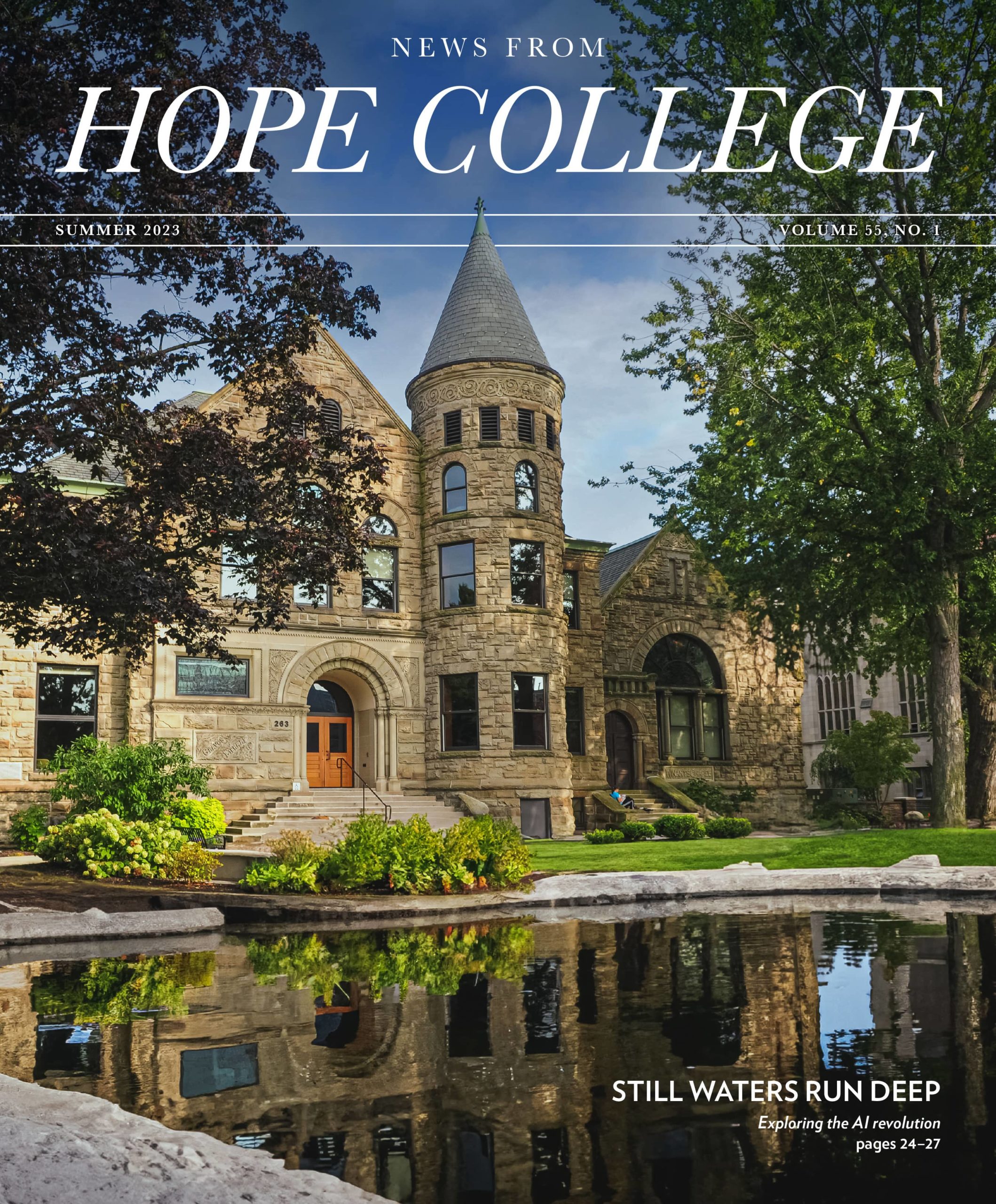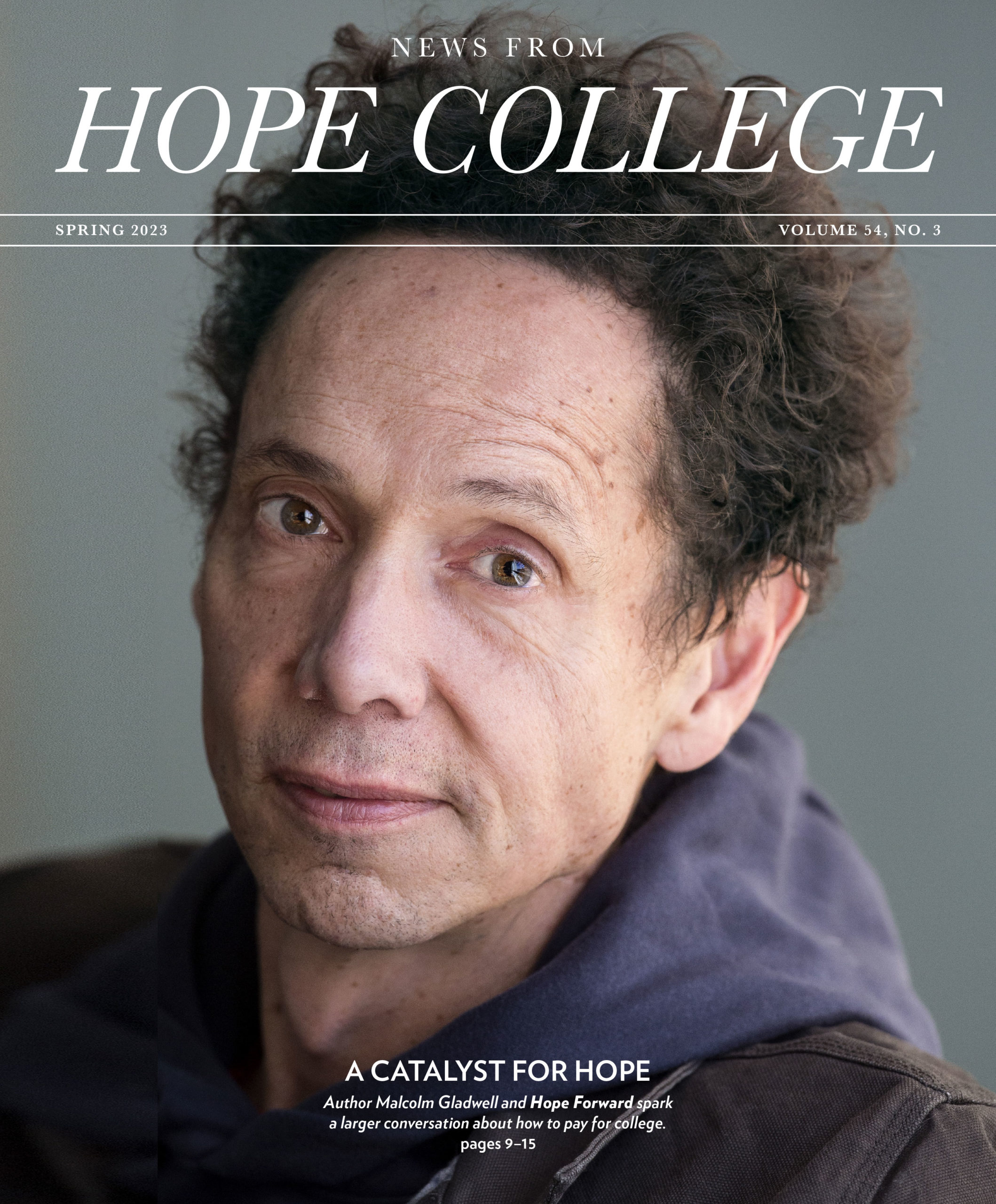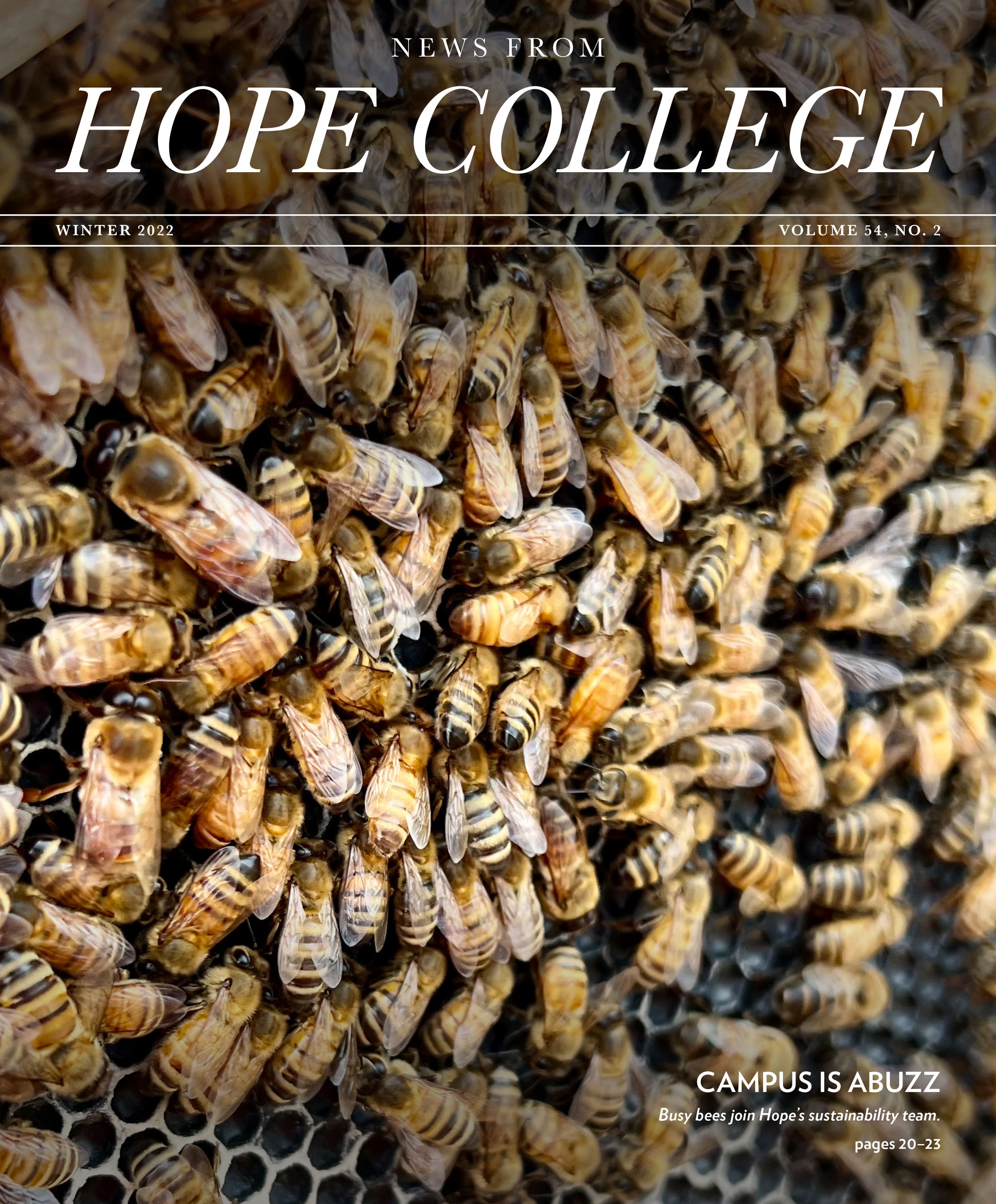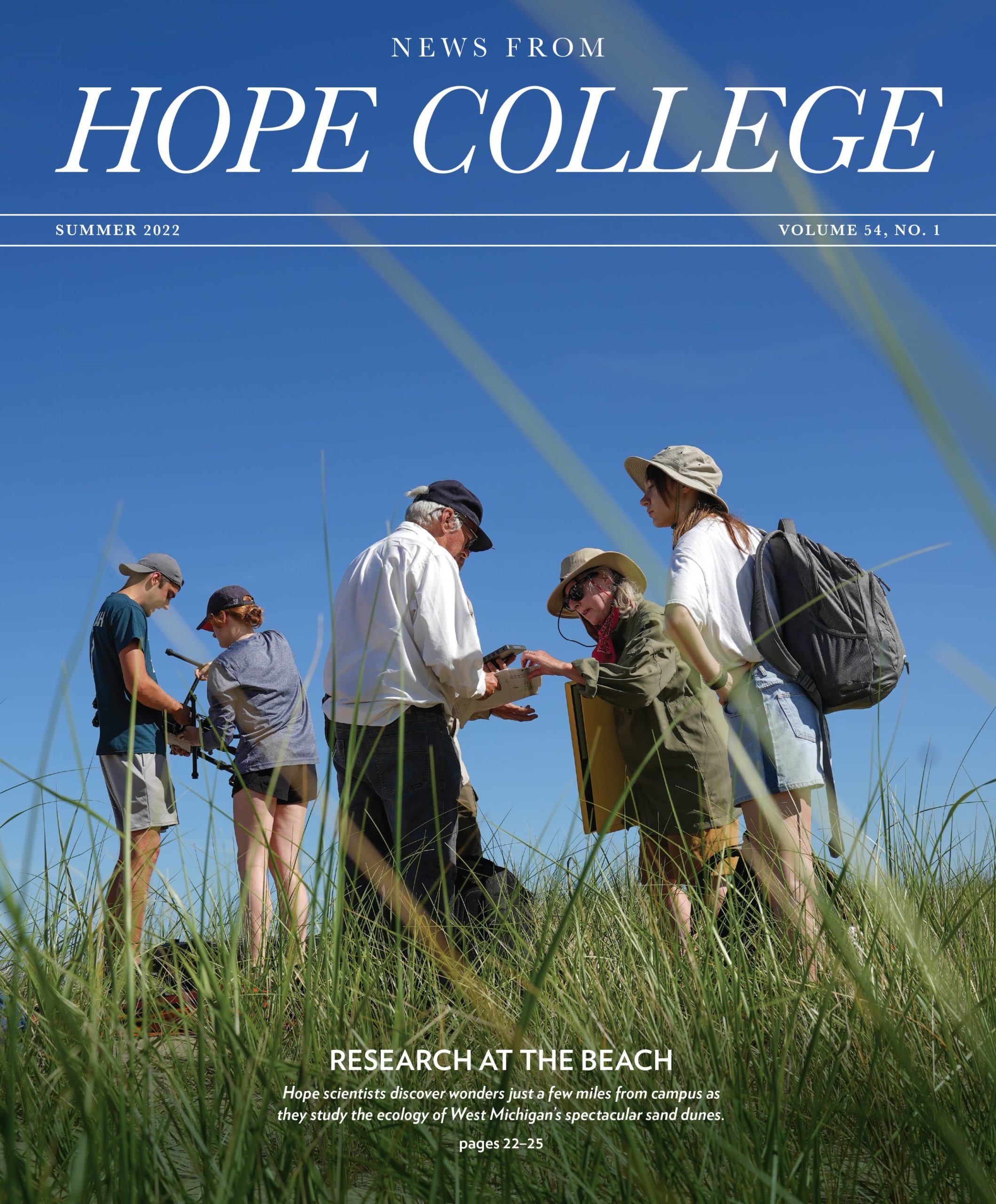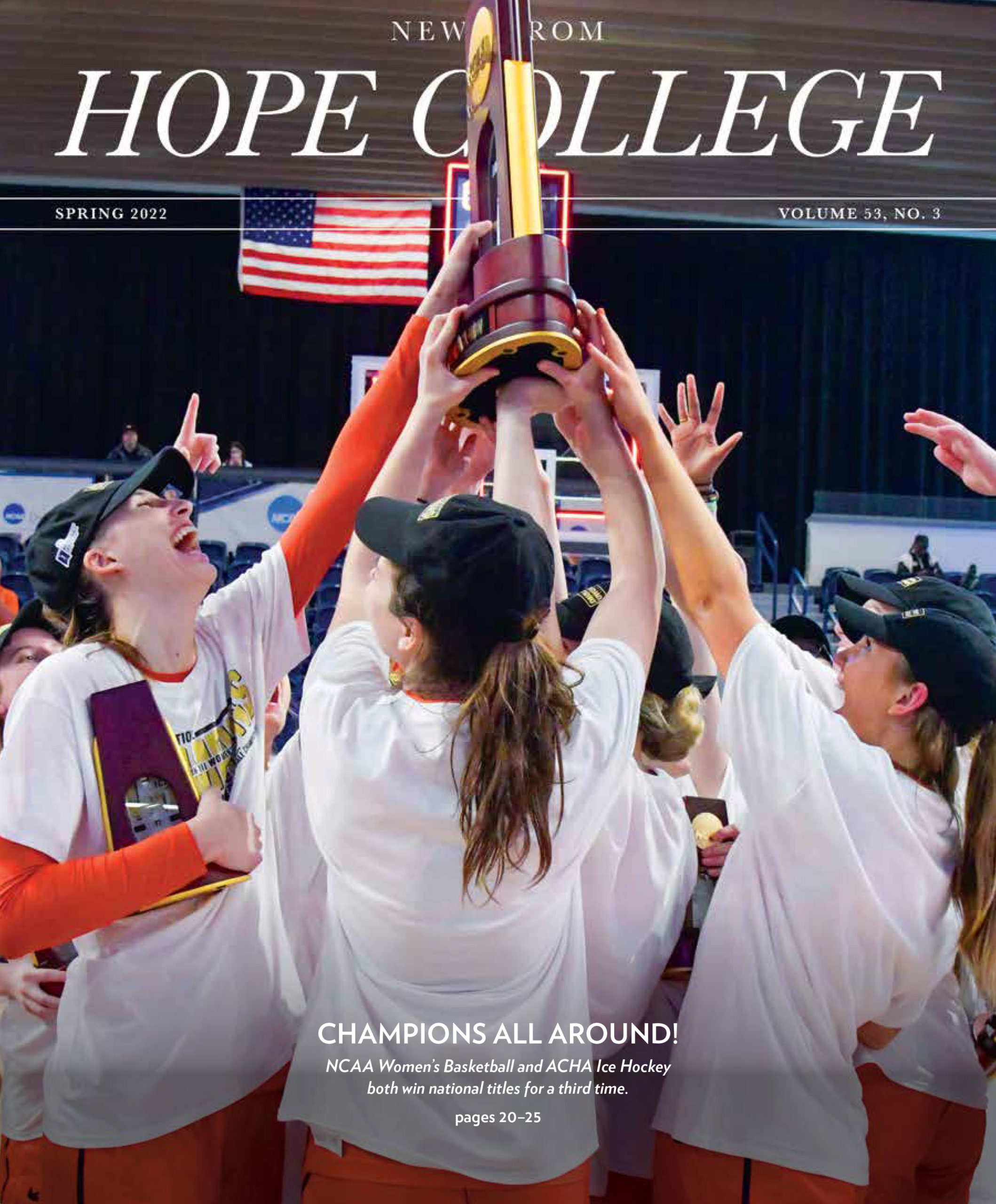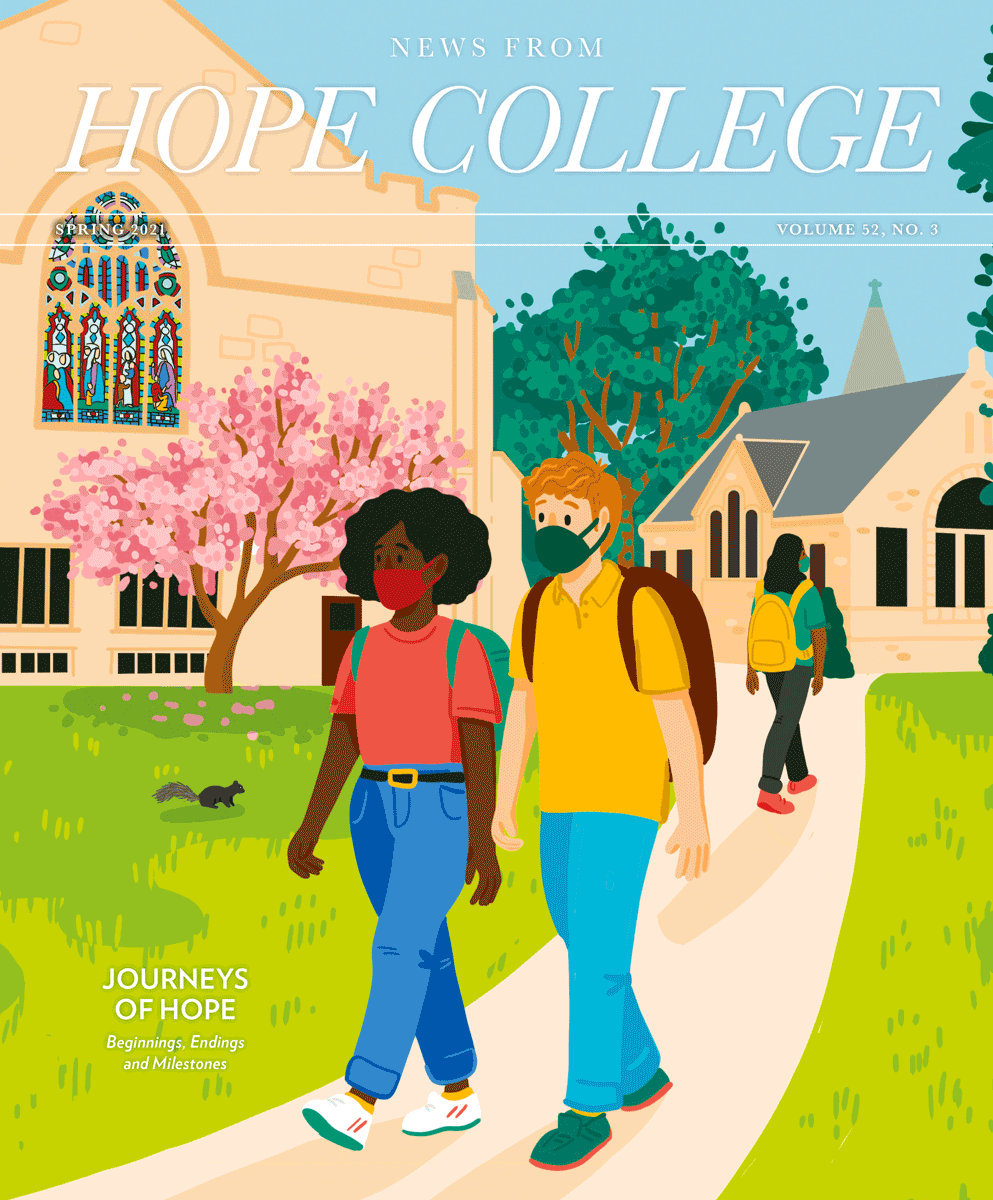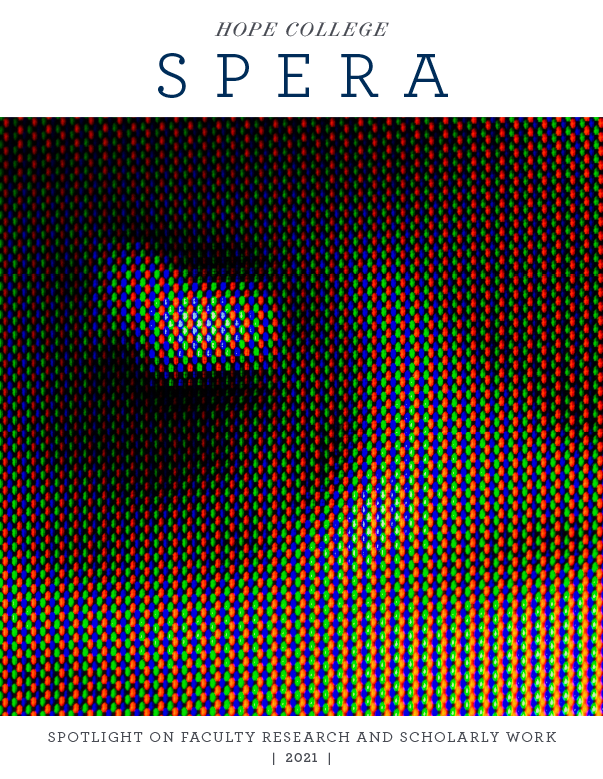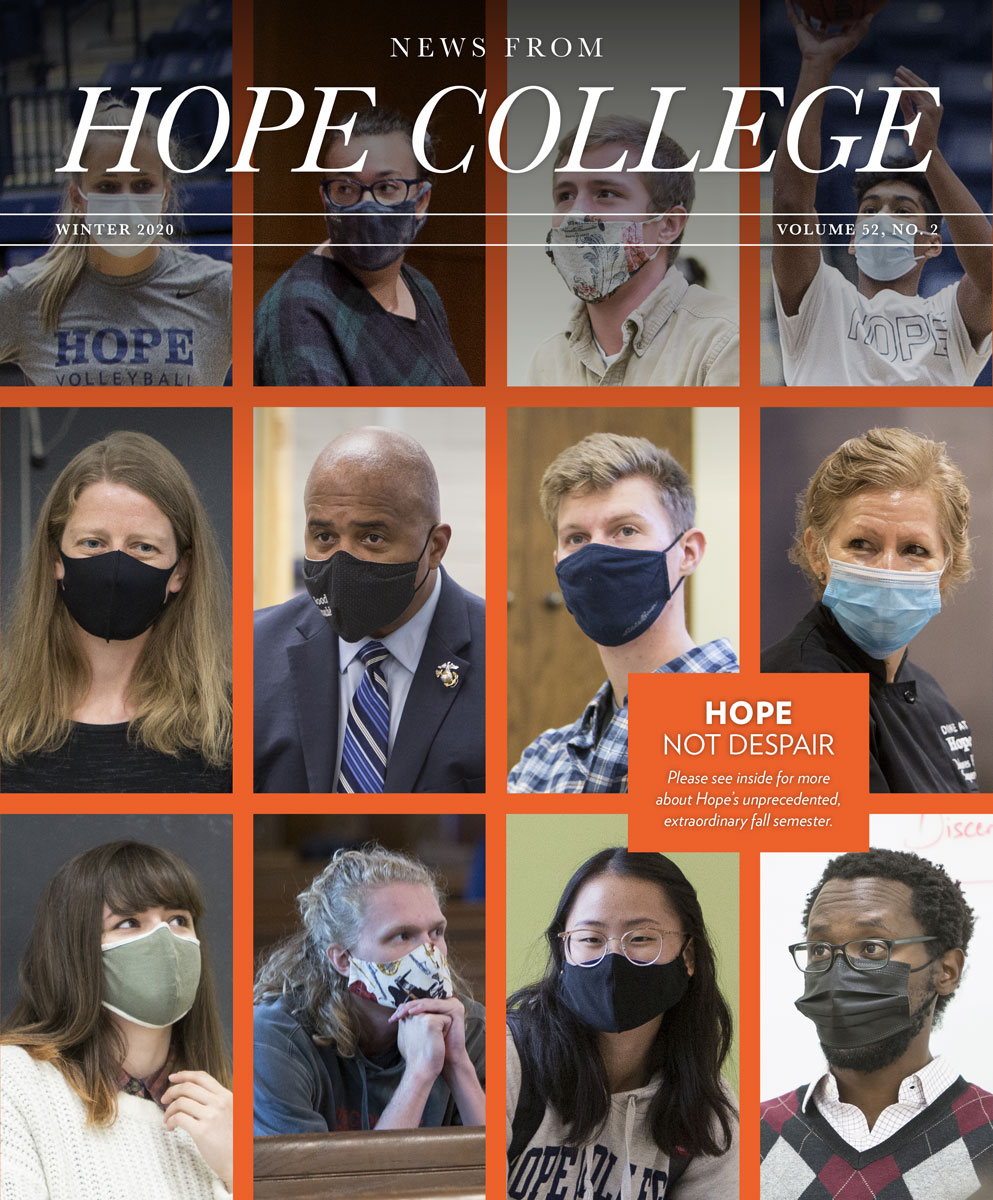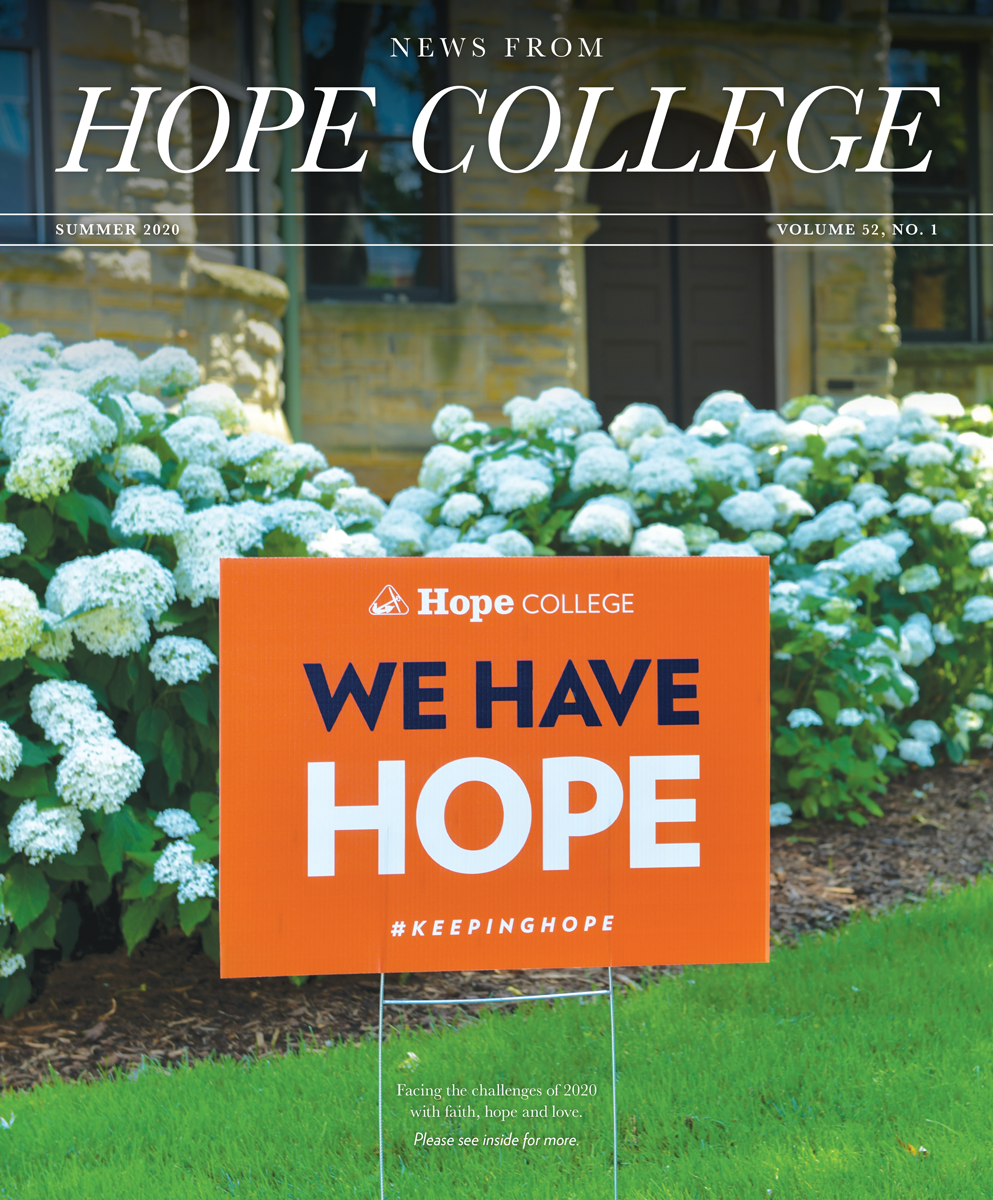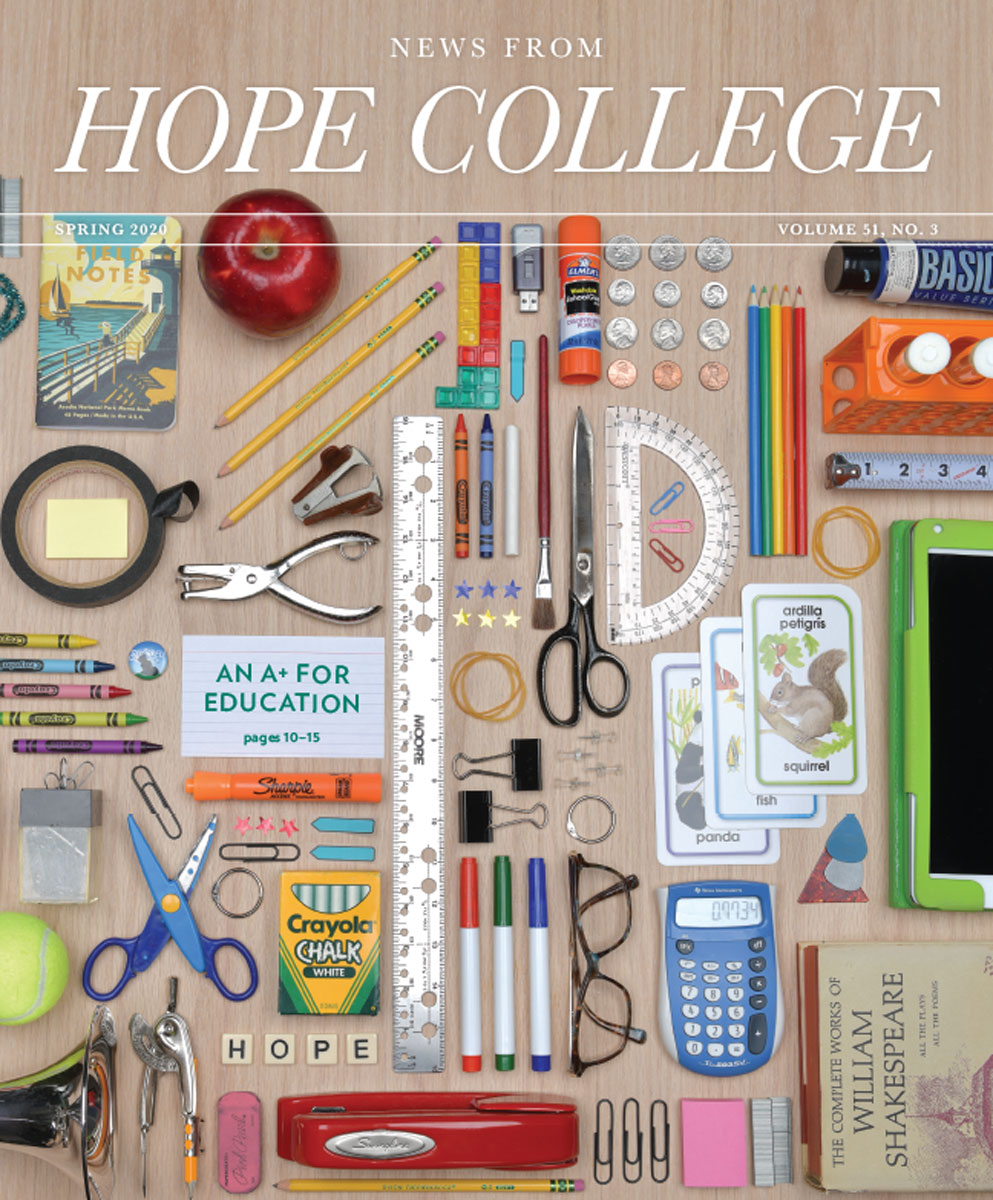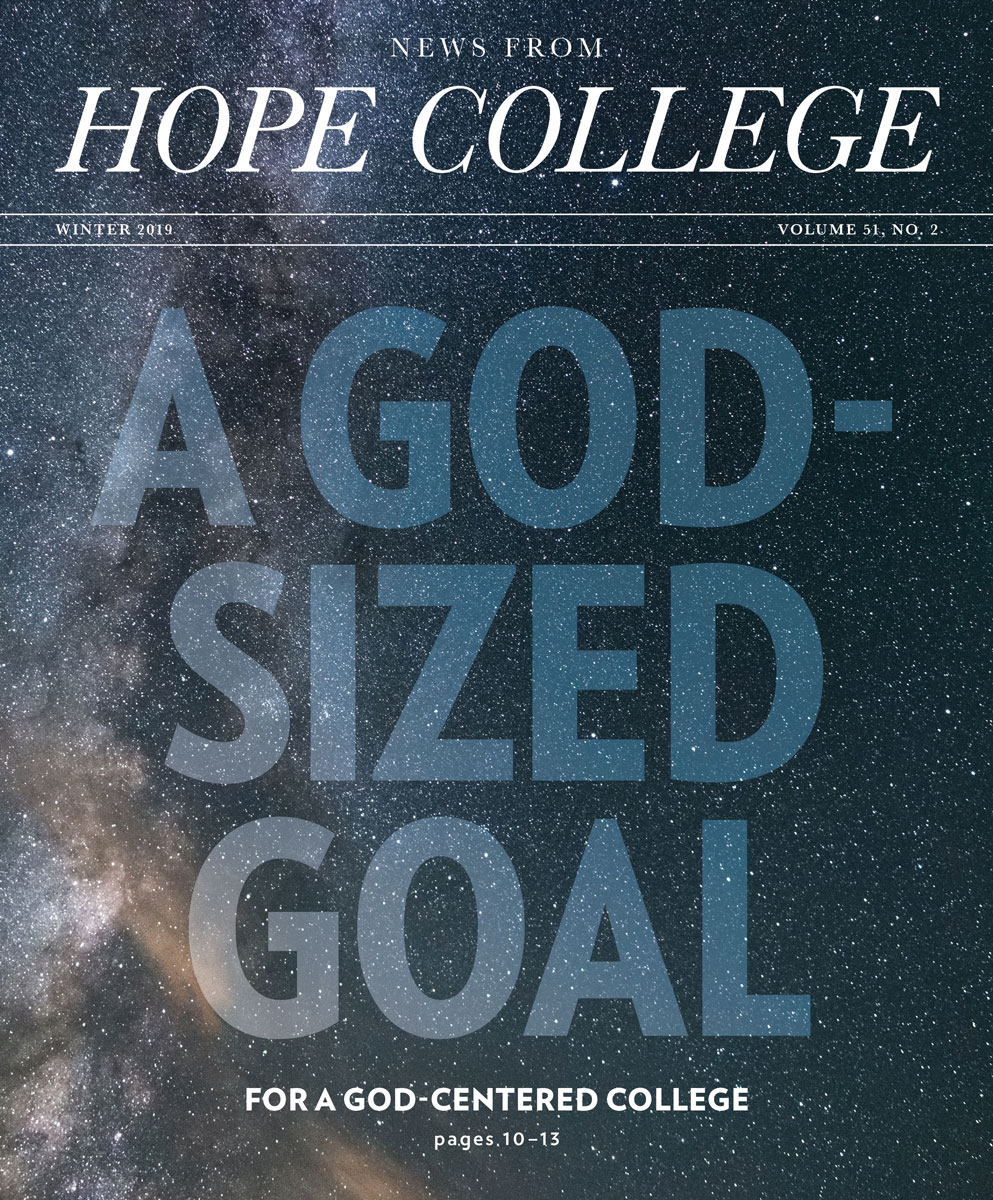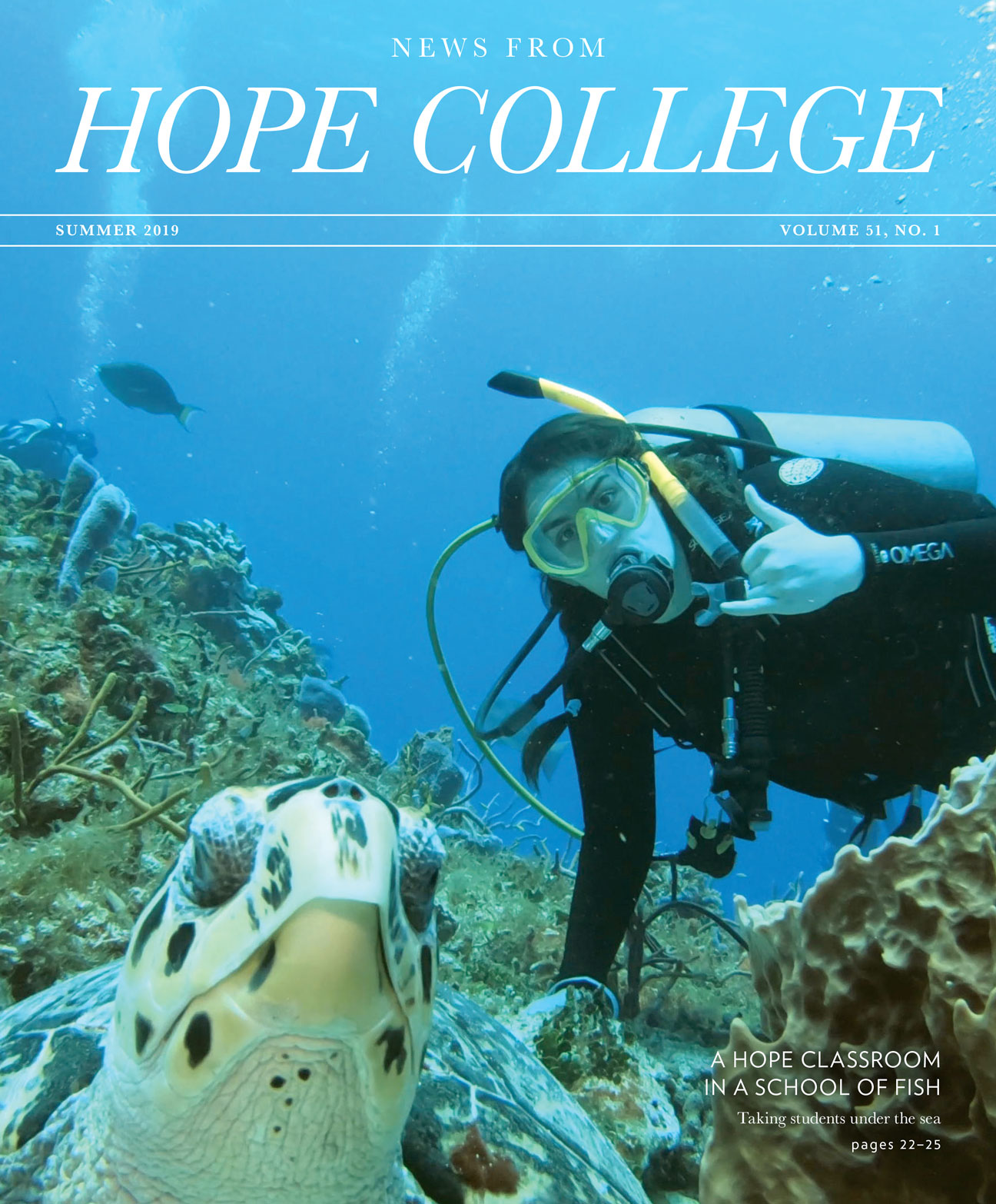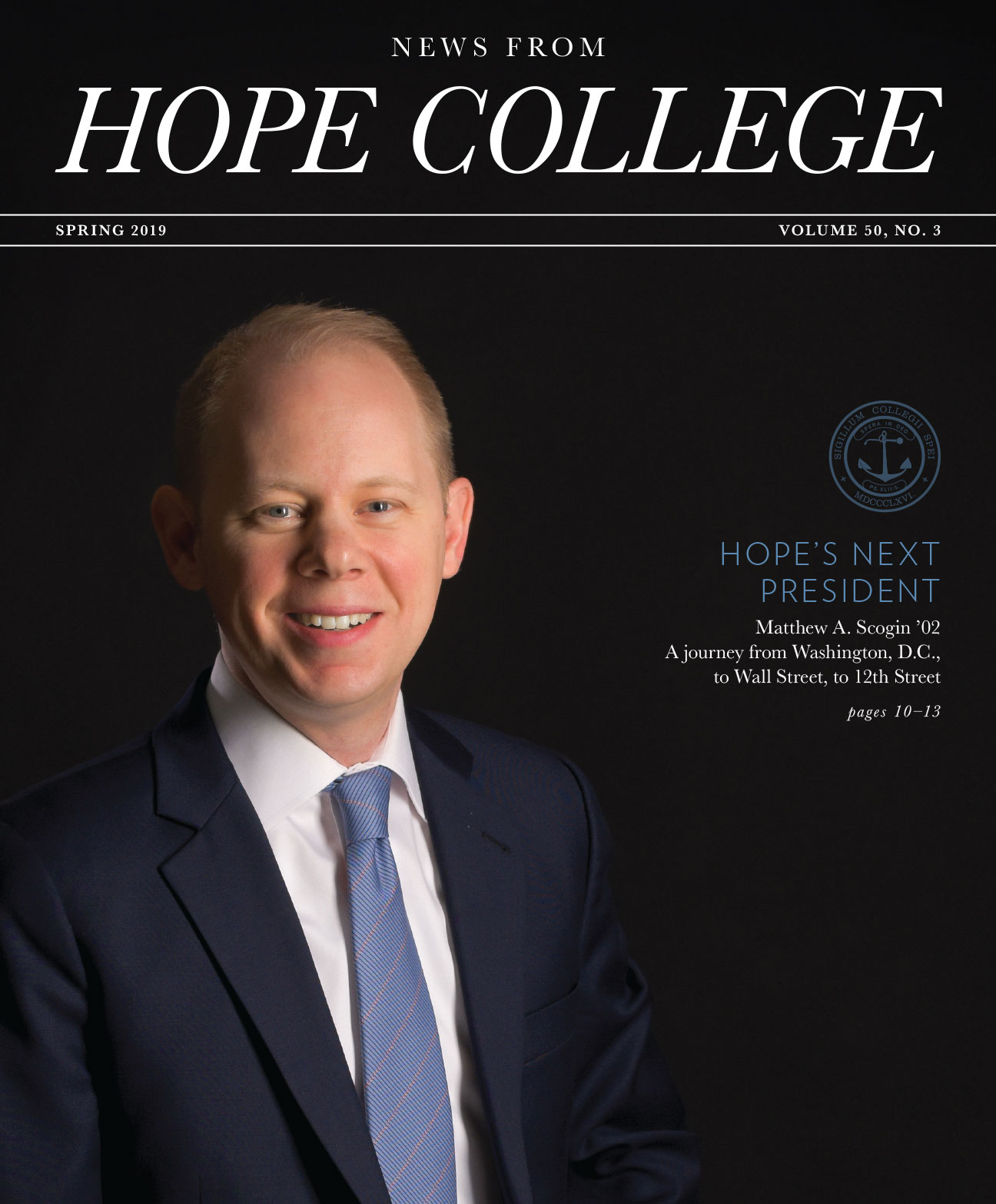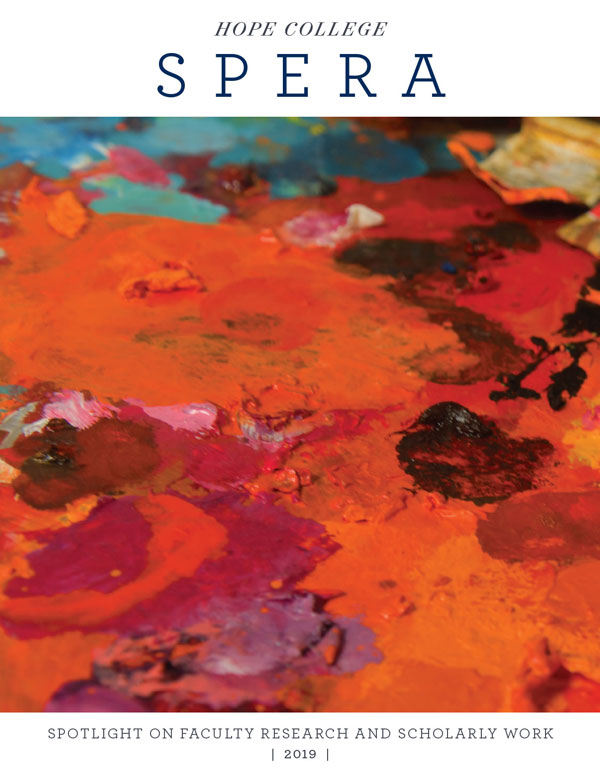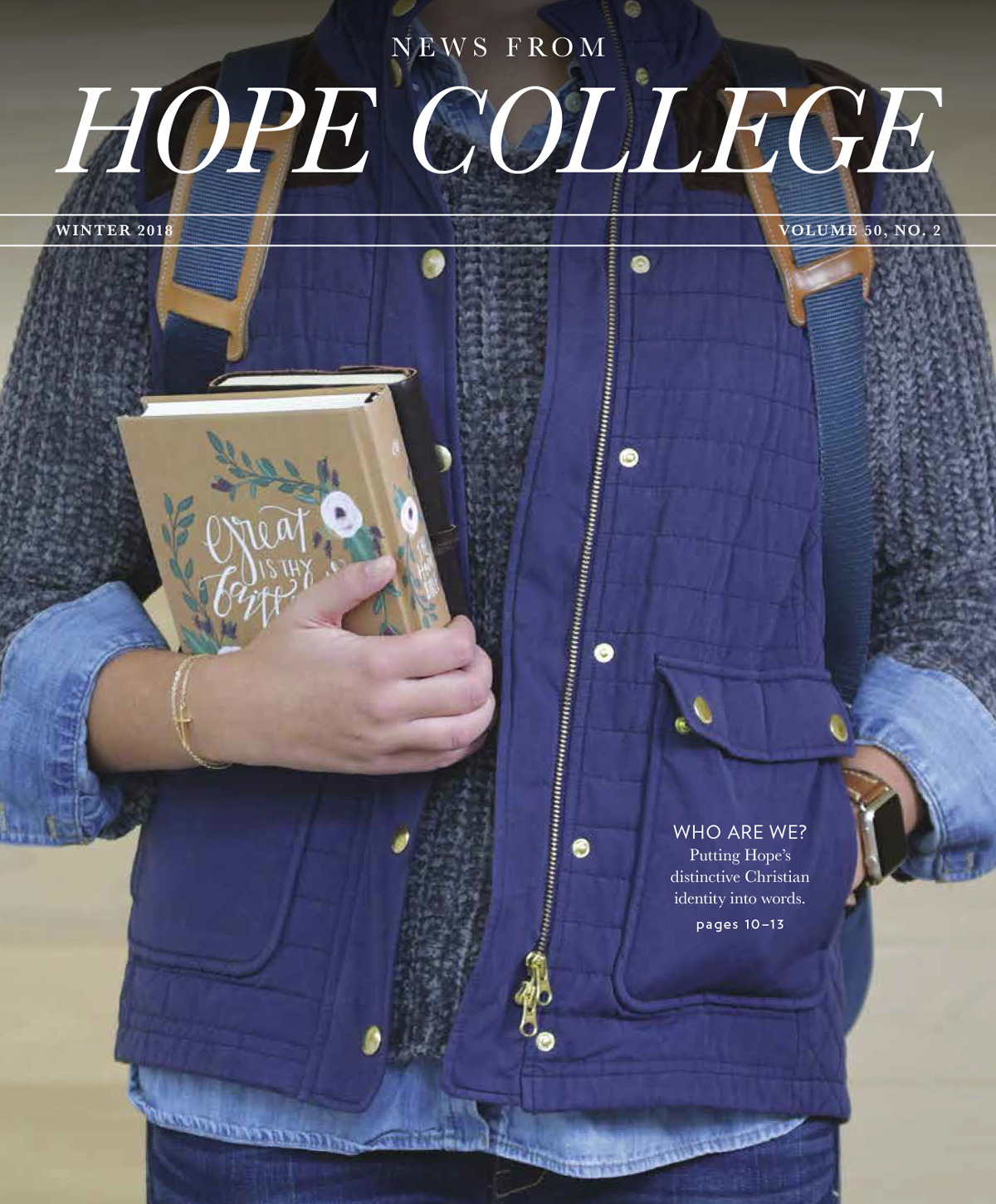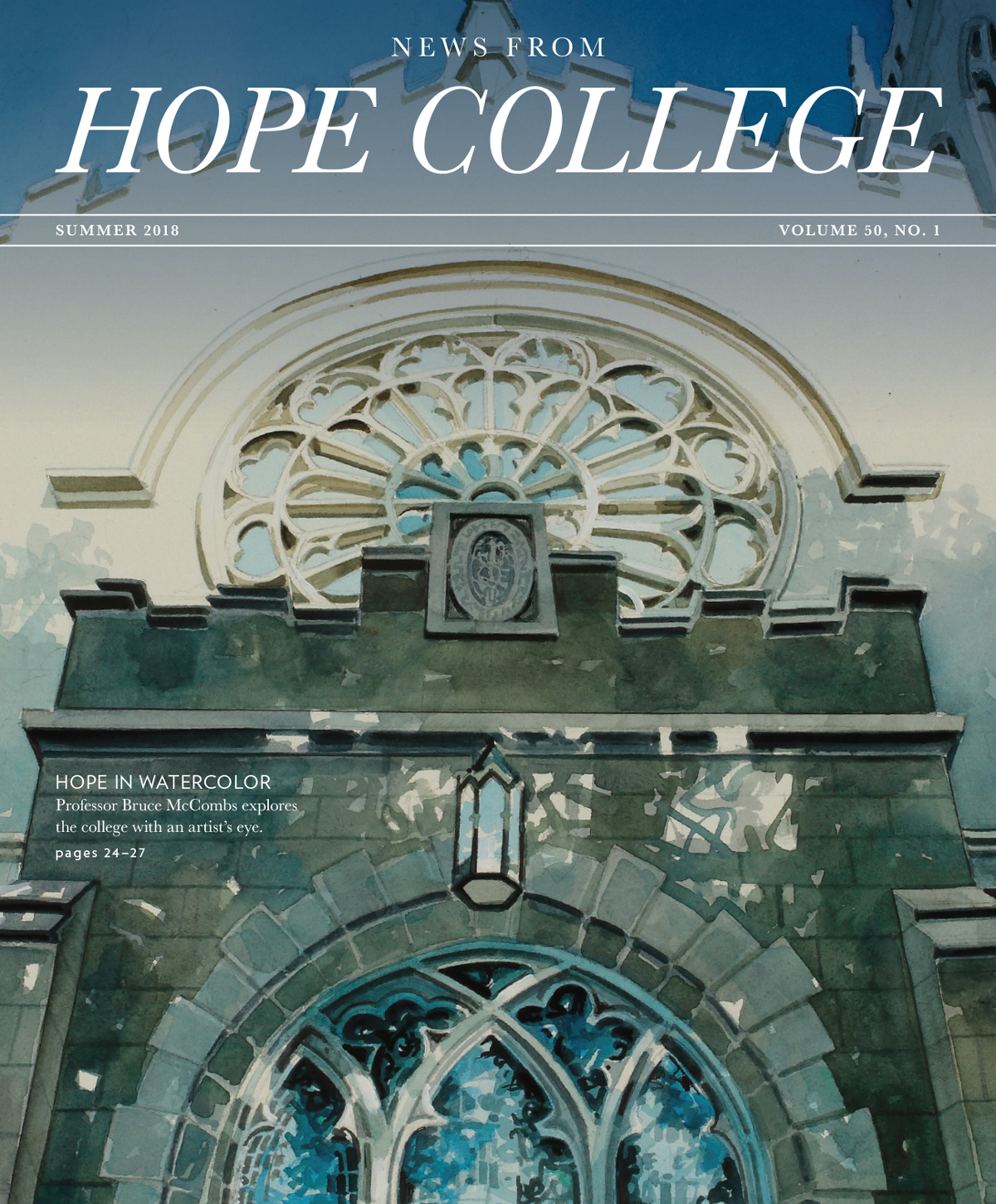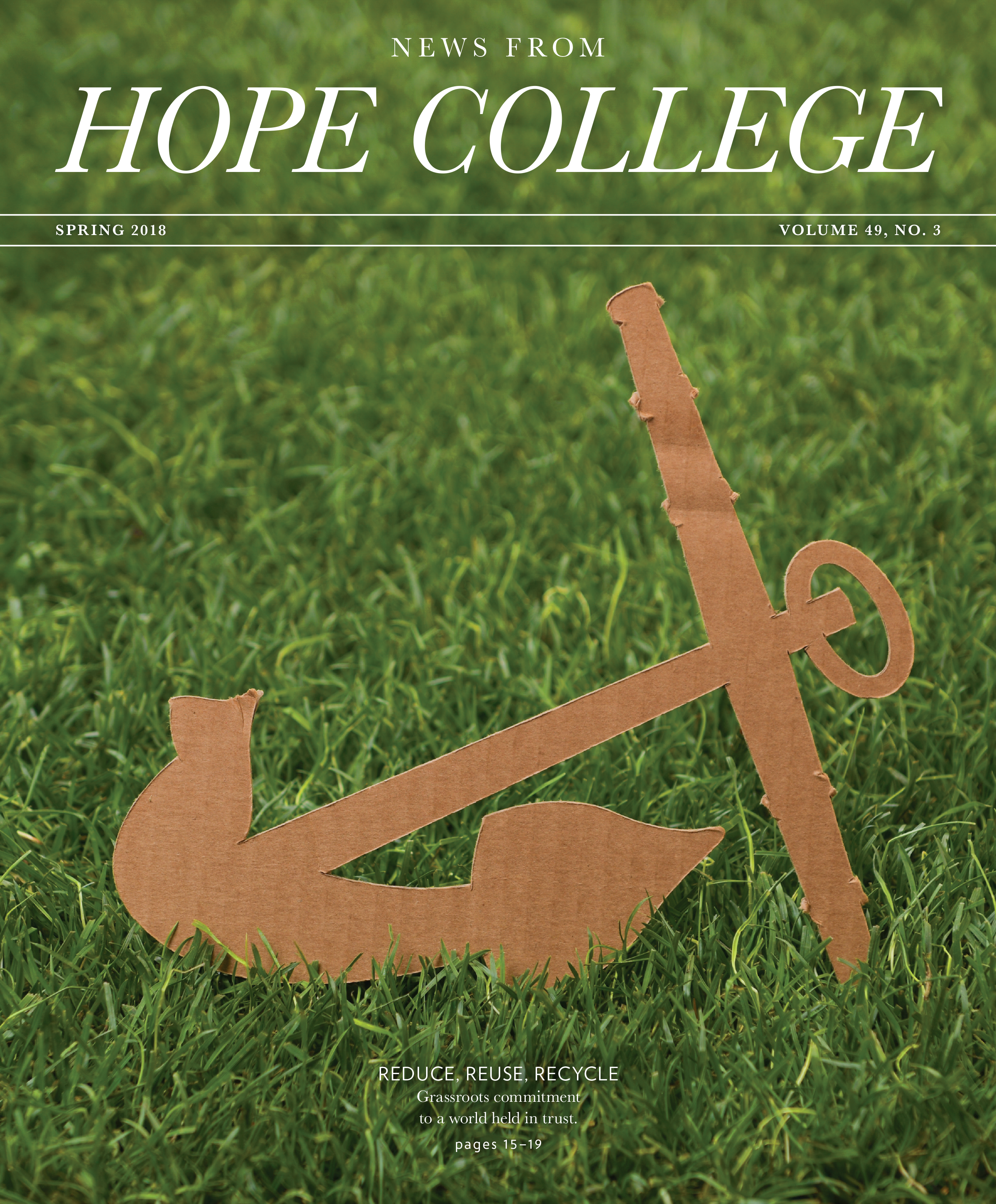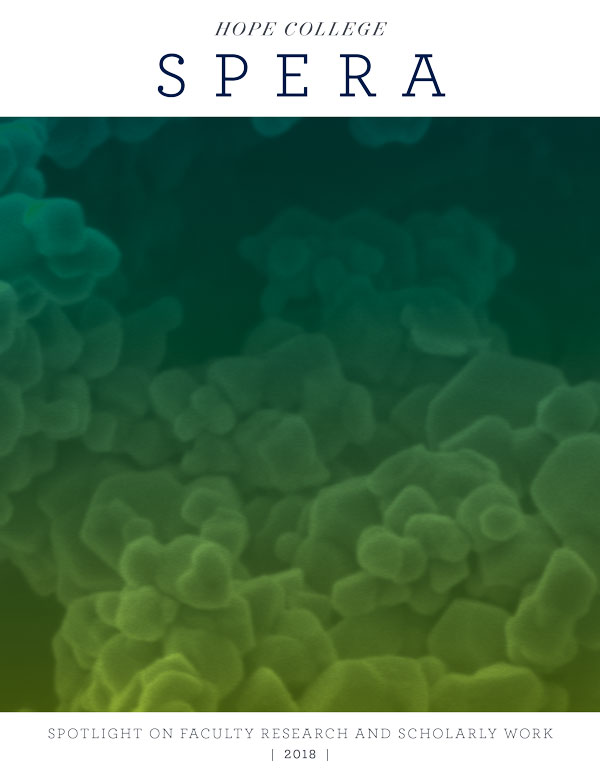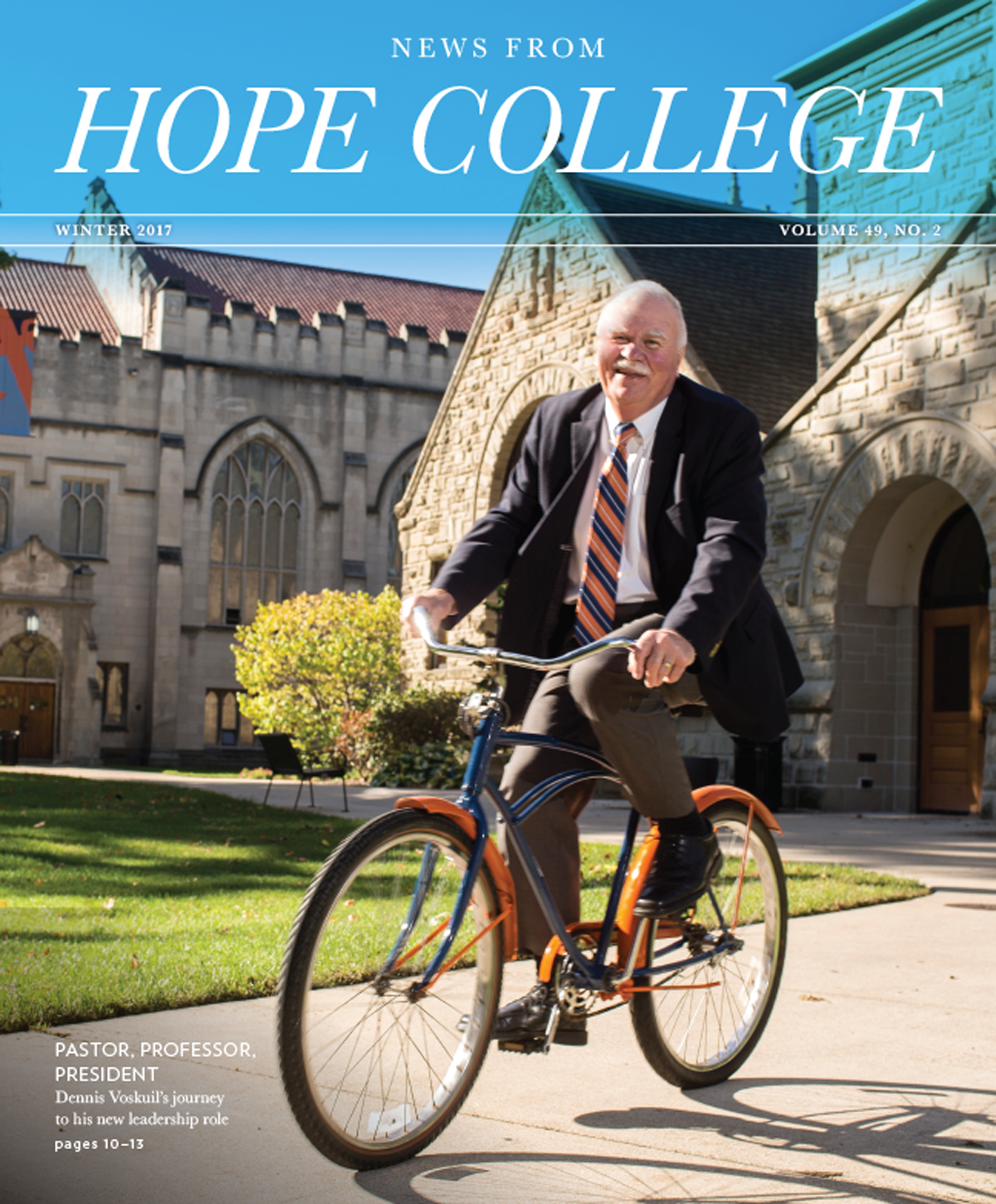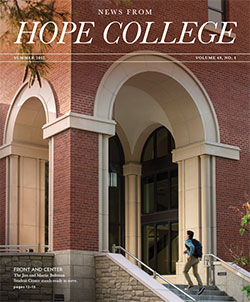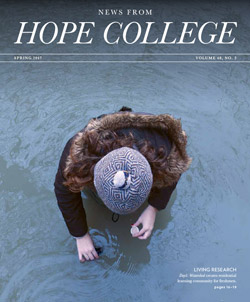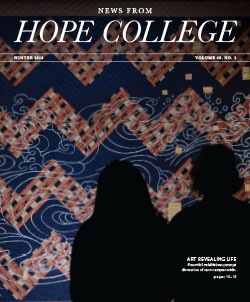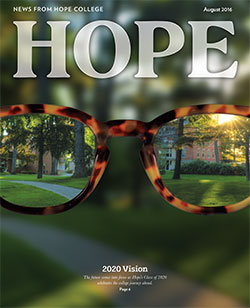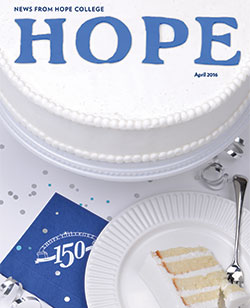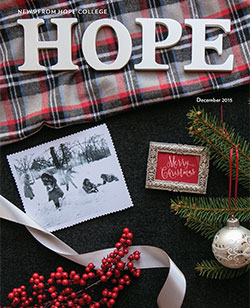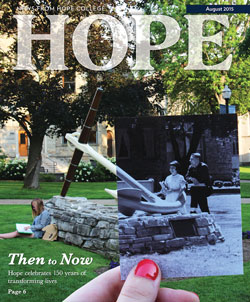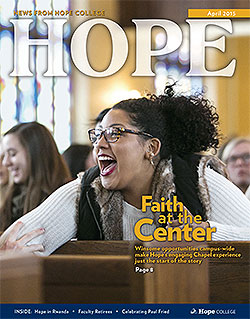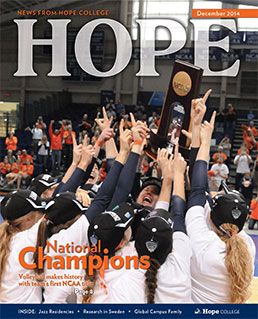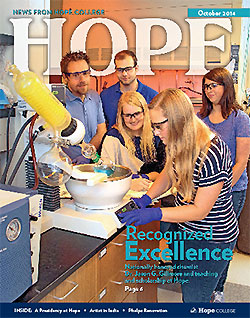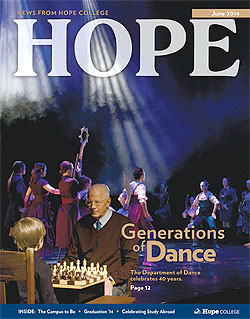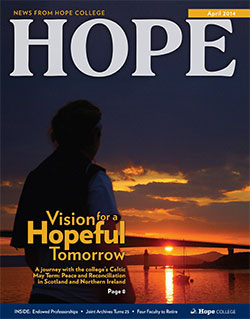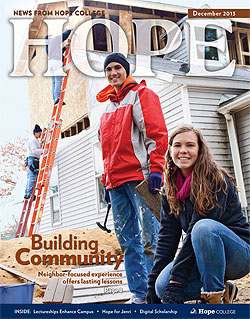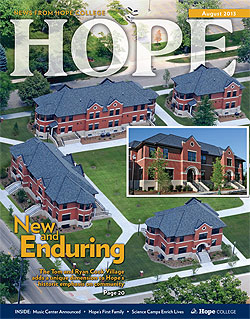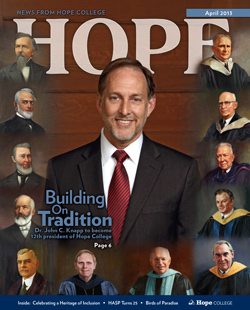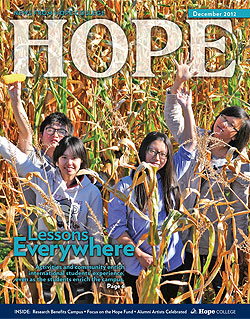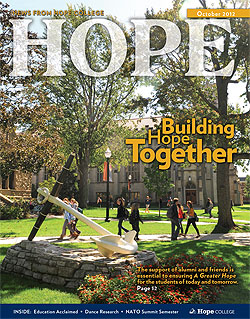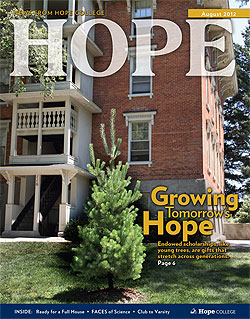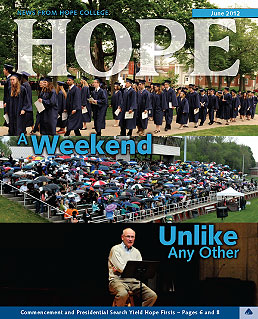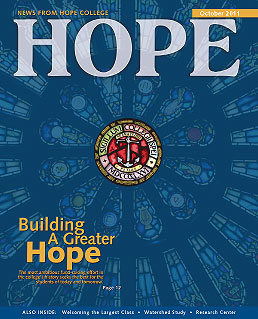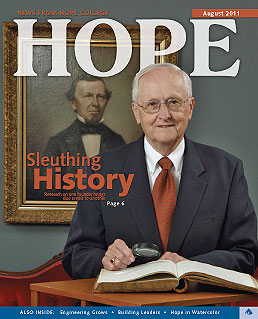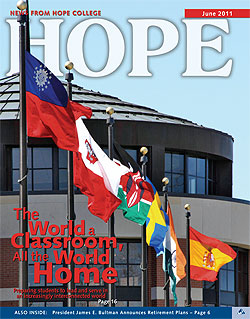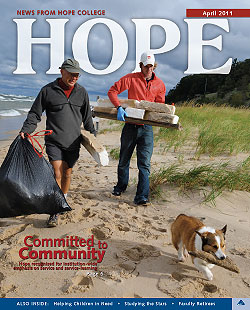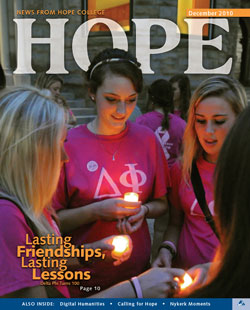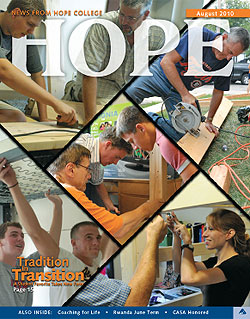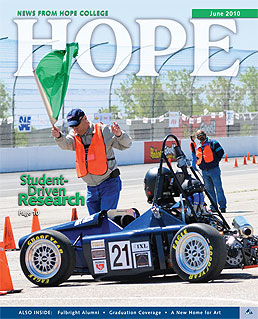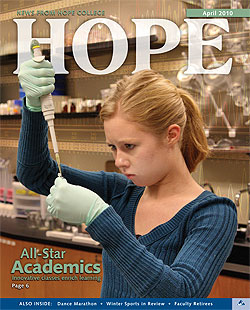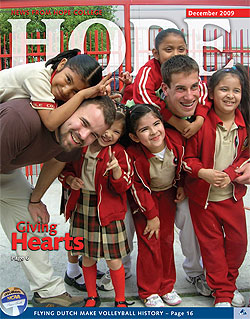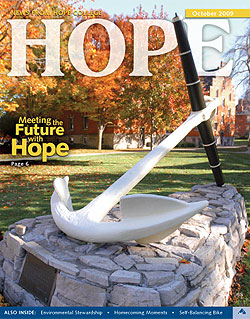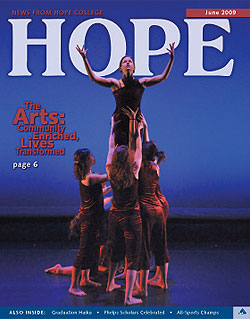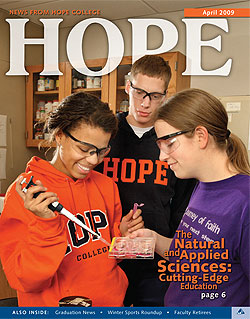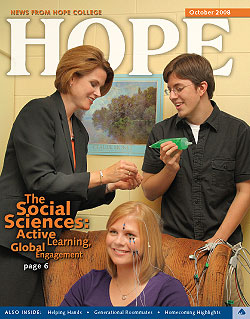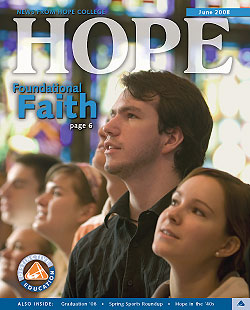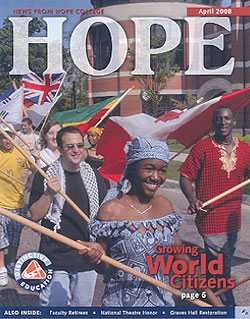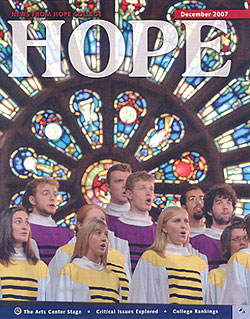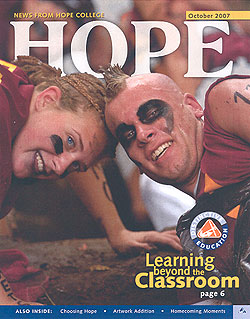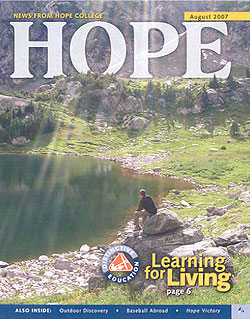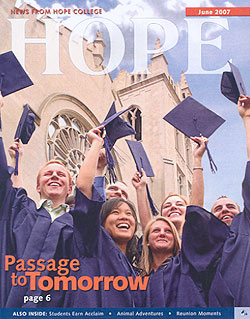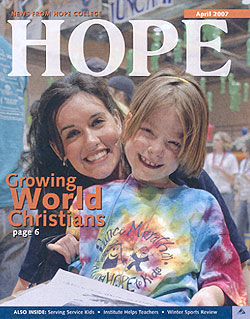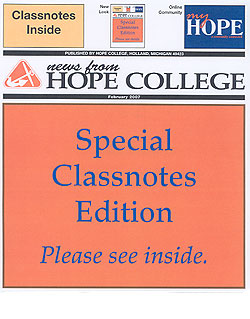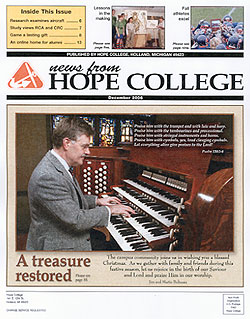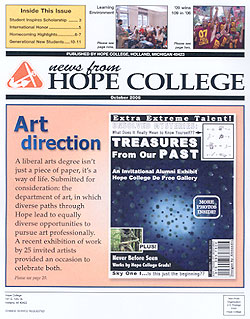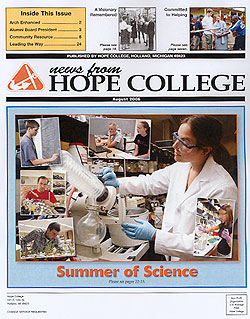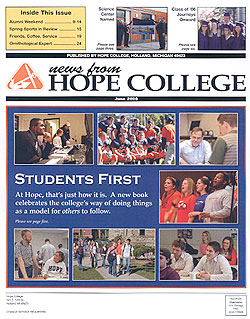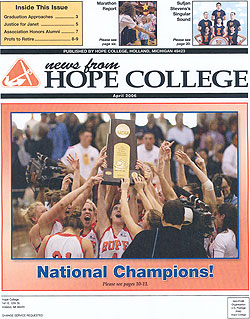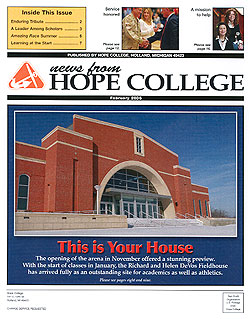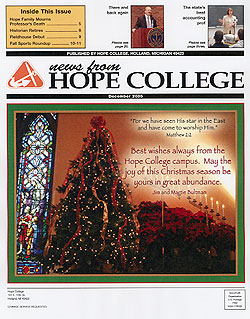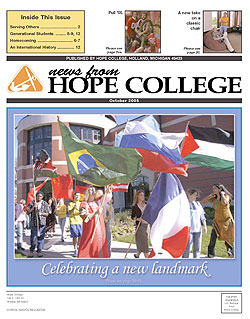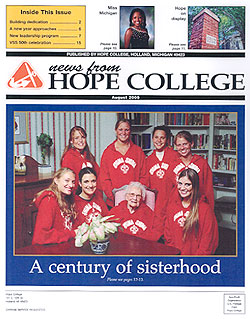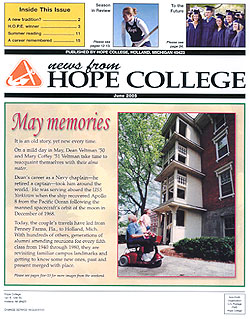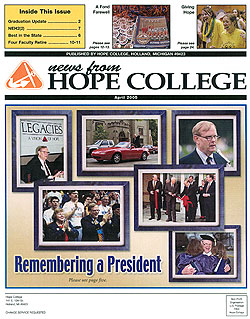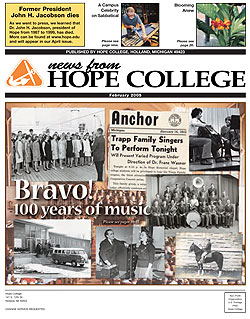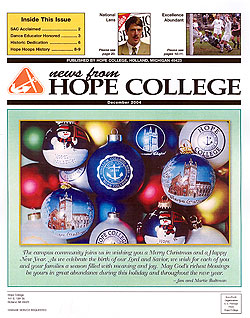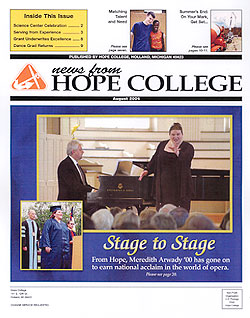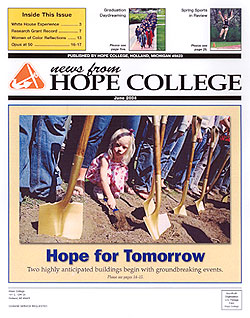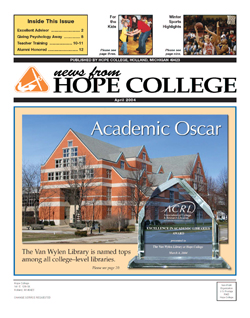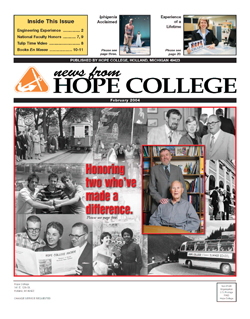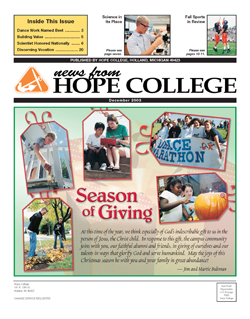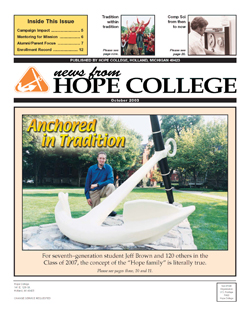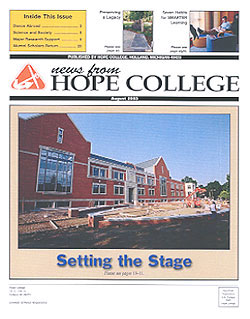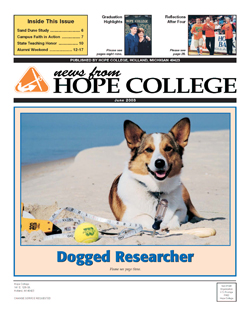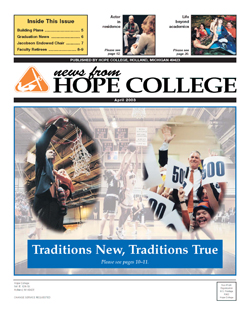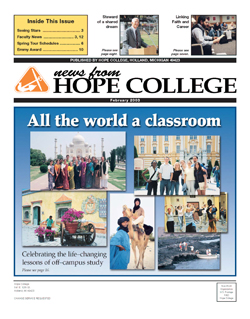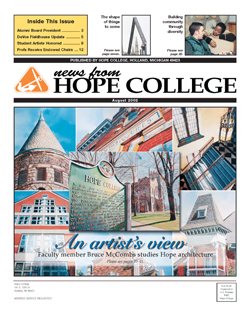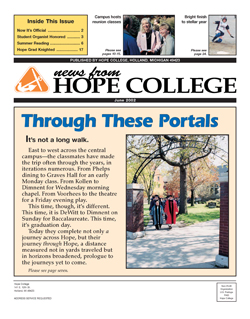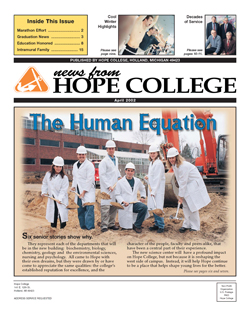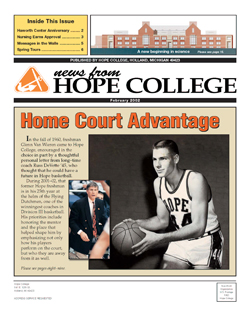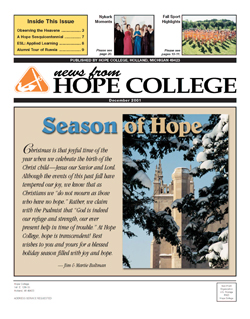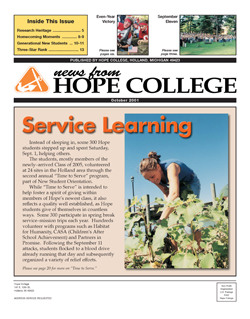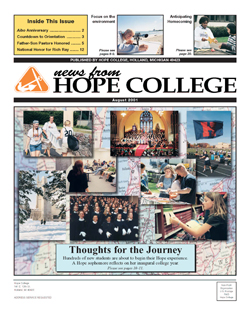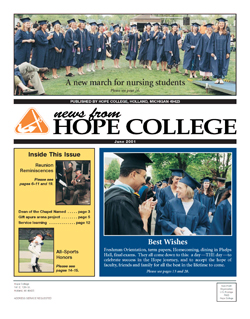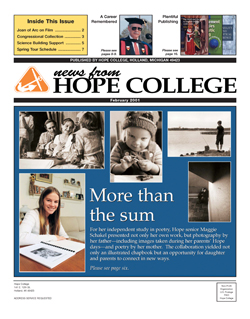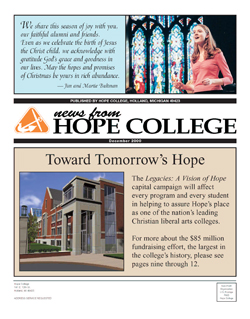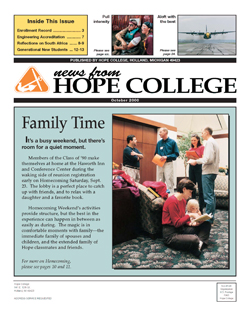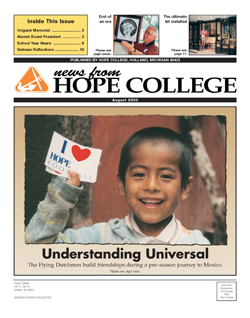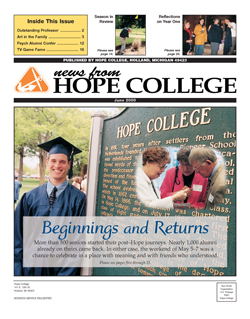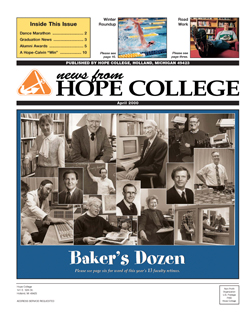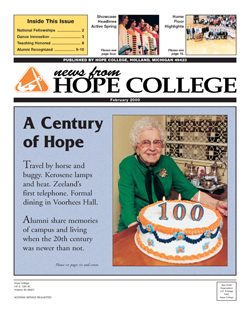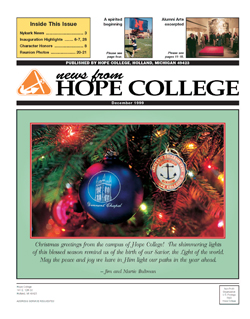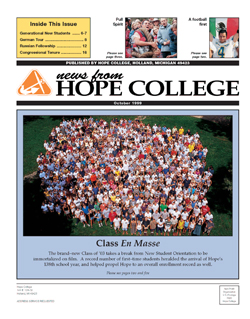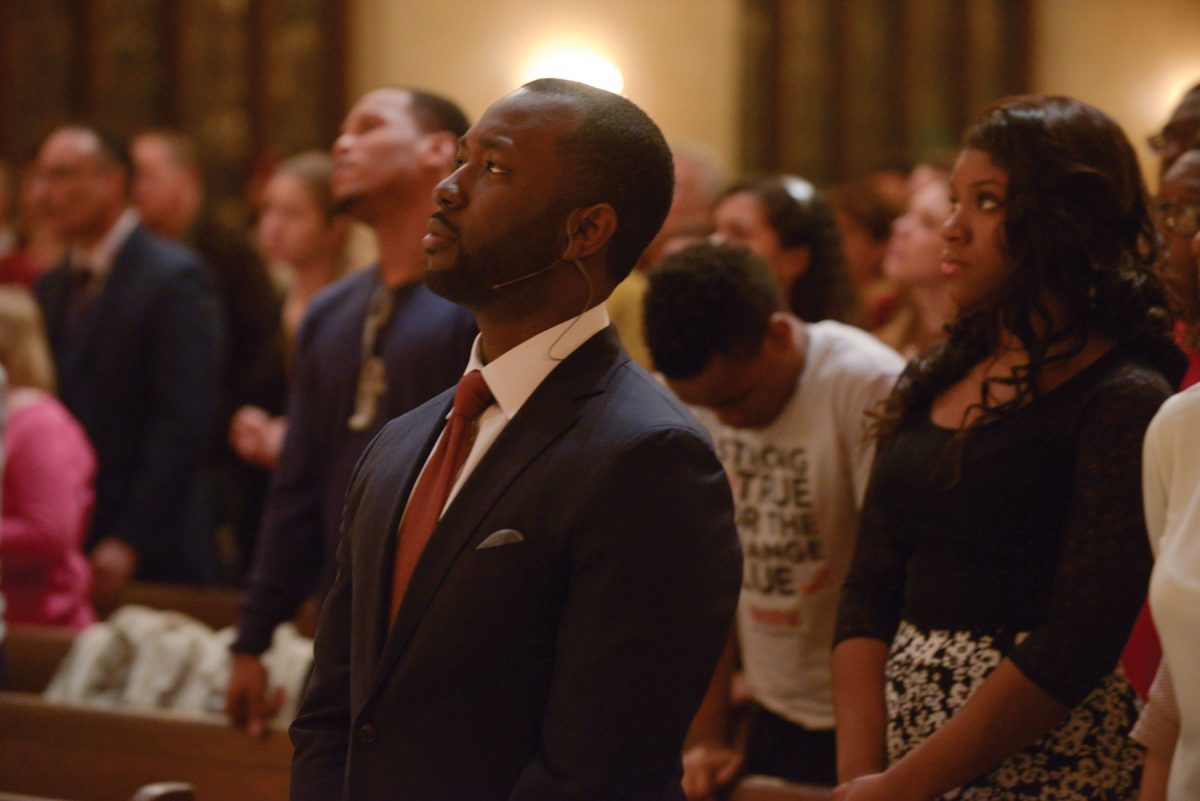Quote, Unquote: Julian Hinson ’10, MLK Lecture
Quote, unquote is an eclectic sampling of things said at and about Hope College.
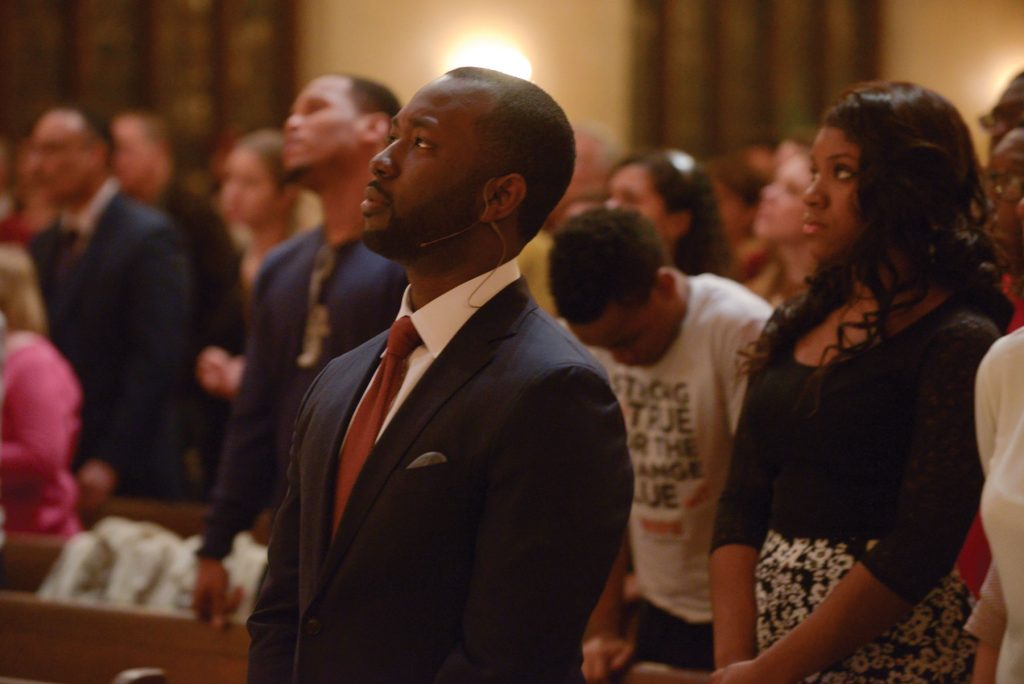
Drawing on his own experiences, Julian Hinson ’10 outlined three levels of engagement for his audience to follow in living into the message of Dr. Martin Luther King Jr.
Hinson delivered the address “Dismantling Injustice: Creating a New Legacy for a Better Future” as the annual Martin Luther King Jr. Civil Rights Lecture at Hope on Monday, Jan. 16.
Hinson today is a fourth-year medical student at Meharry Medical College in Nashville, Tennessee, where he pursues a passion for bridging the divides that contribute to ongoing health disparities. He noted, though, that his path was less certain when he graduated from Hope.
He had no definite plans, and returned home feeling the weight of what seemed like failure. “Let me add to that another stressor: you’re black,” he said. “So now you’re additionally thinking about the fact that, ‘Oh My Gosh, am I failing my race, am I failing to achieve the goals that Dr. King set before me?’”
Fortuitously, a friend encouraged him to attend an event organized by Martina’s Table, which brings people together to solve social problems. He met a variety of community members there, including a woman who had marched with King.
“So, I had the rare chance to take all of my stresses, all of my fears, all of my anxieties about my race and what I would do with my future, uncertainties, and throw one question at her. I did: ‘Mrs. Watson, do I as a young black man have a responsibility to my people?’ Her answer was quick as a whip,” Hinson recalled. “She said, ‘No, young man. We fought and marched so that you would have the freedom to do your best.’”
“These are words that gnaw at me to this day, because they are a gift. They’re like a scholarship with no GPA requirement. They are free: ‘I did so you could just do your best.’ This is like the gift of Christ: ‘Here: salvation. Nothing on you.’ ‘Here’s life, you may have it more abundantly. Nothing on you.’ This for me was — I could barely fathom this.
“And the reality is that this is Dr. Martin Luther King, Level One: ‘You have the freedom to do your best,’” Hinson said.
Hinson went on to Meharry, but he noted that he also found himself called by the times, deeply troubled by events such as the killing of Trayvon Martin in 2012 and Jamar Clark a few years later in his hometown of Minneapolis. He wrestled with how to respond, particularly as others participated in protests. Should he, he wondered to a friend, be joining them?
“He told me, ‘You keep asking if you should go, if you should have gone, if you must go. You should have been asking, “Can I go? How can I help?”’” Hinson recalled.
“Guys, this is Level Two: Ask a different question. ‘How can I help?’ ‘What can I do?,’” Hinson said.
The answer, he said, doesn’t necessarily mean protesting, but it does mean reflecting honestly about how one’s gifts might best serve.
For the third level, he harkened to King’s address “The Mountaintop.” He recalled how King shared the Parable of the Good Samaritan and the passersby who questioned whether or not to become involved.
“This is Level Three, where Dr. King outlines that basic idea that the ultimate measure of a man is not where he stands in times of comfort and convenience, but rather where he stands in times of challenge and controversy,” Hinson said. “He will risk his prestige, his position and even his life to walk the narrow walkways and haggard pathways to lift some bruised and beaten brother to a more normal life.”
